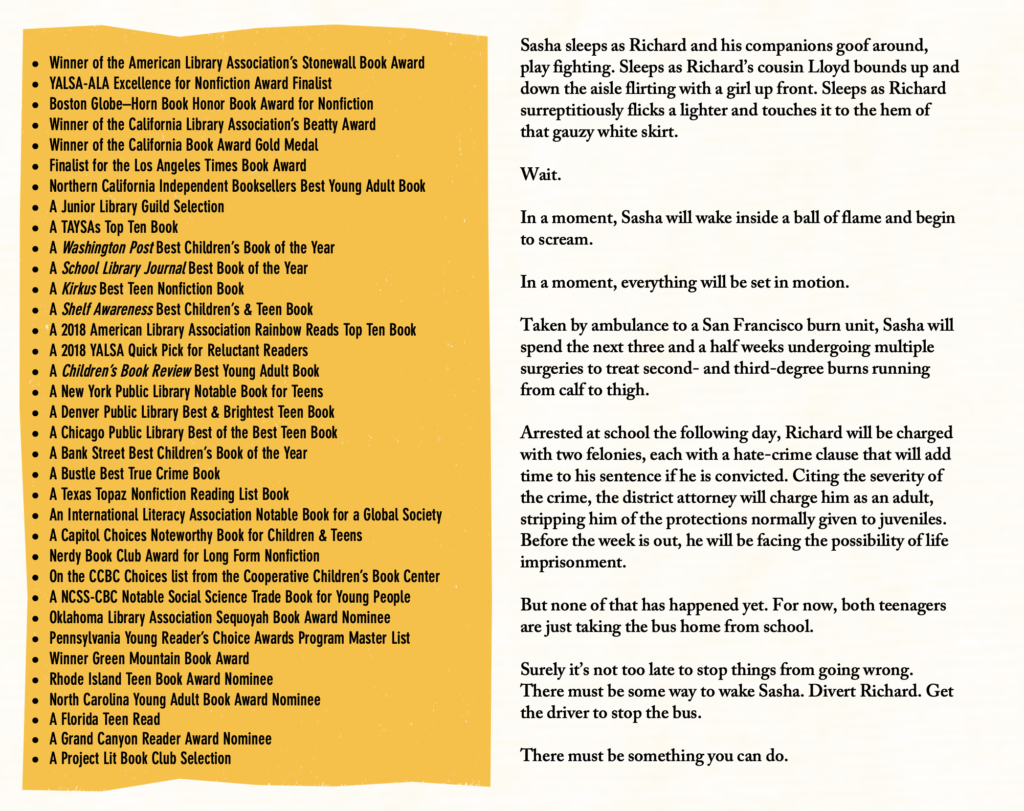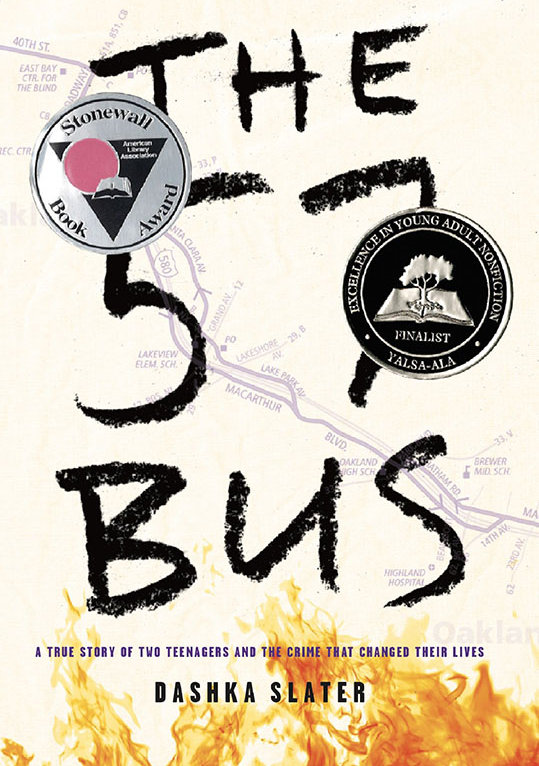I have fond memories of re-reading titles such as “The Scarlet Letter” and “To Kill a Mockingbird” alongside my kids during their high-school English classes. Going back to investigate the classics is a satisfying pastime but most of all, it’s cool to watch your kid wrestle with the Big Issues that great literature can awaken – or at least, that teachers use to launch conversation about the important lessons that high school is designed to impart .
I recently finished The 57 Bus and am impressed with how author Dashiki Slater balanced several contemporary Big Issues inside the trappings of a true crime title for Young Adults. Slater lives in Oakland CA, where a horrific incident took place on a bus that stopped in front of her house became national news in 2013: a young black boy set fire to the skirt of a young queer teen. The queer youth was severely burned, but went onto college at MIT; the black boy wound up in jail, despite having written compassionate apologies to the victim and their family. Slater, who first unraveled the story as a reporter for the New York Times Magazine, got to know the families of both teens and eventually expanded her reportage into a true crime title for young adults. She parses the complex characters and all-too-real details with a straight-forward, lively prose style that reminded me of John Carreyrou’s Bad Blood about Elizabeth Holmes and Theranos, another non-fiction page turner.
The 57 Bus, which was published in 2017, is used in classrooms around the country to foster conversation around gender, race and justice. Slater, who I met when she participated in a Human Rights Watch book club conversation about the themes of juvenile incarceration and restorative justice, has been impressed with how many “red state” school systems have assigned the book (although there are new banned book lists circulating in Texas and her book is now on that list). Through Slater’s compelling, even-handed portraits of both families involved and thanks to poetry and statistics that are interspersed into the narrative, I came away with a better understanding of what it is like to be (and parent) a queer teenager, how a smart kid can make a very bad impulsive decision, why the criminal justice system is particularly horrific for minors, and how restorative justice tries to bring all parties to a place of healing (and not punishment). It’s a full plate of issues, written recently enough to feel completely up-to-date.
I highly recommend it as a primer on today’s Big Issues, one that is sure to spark some excellent conversations.



